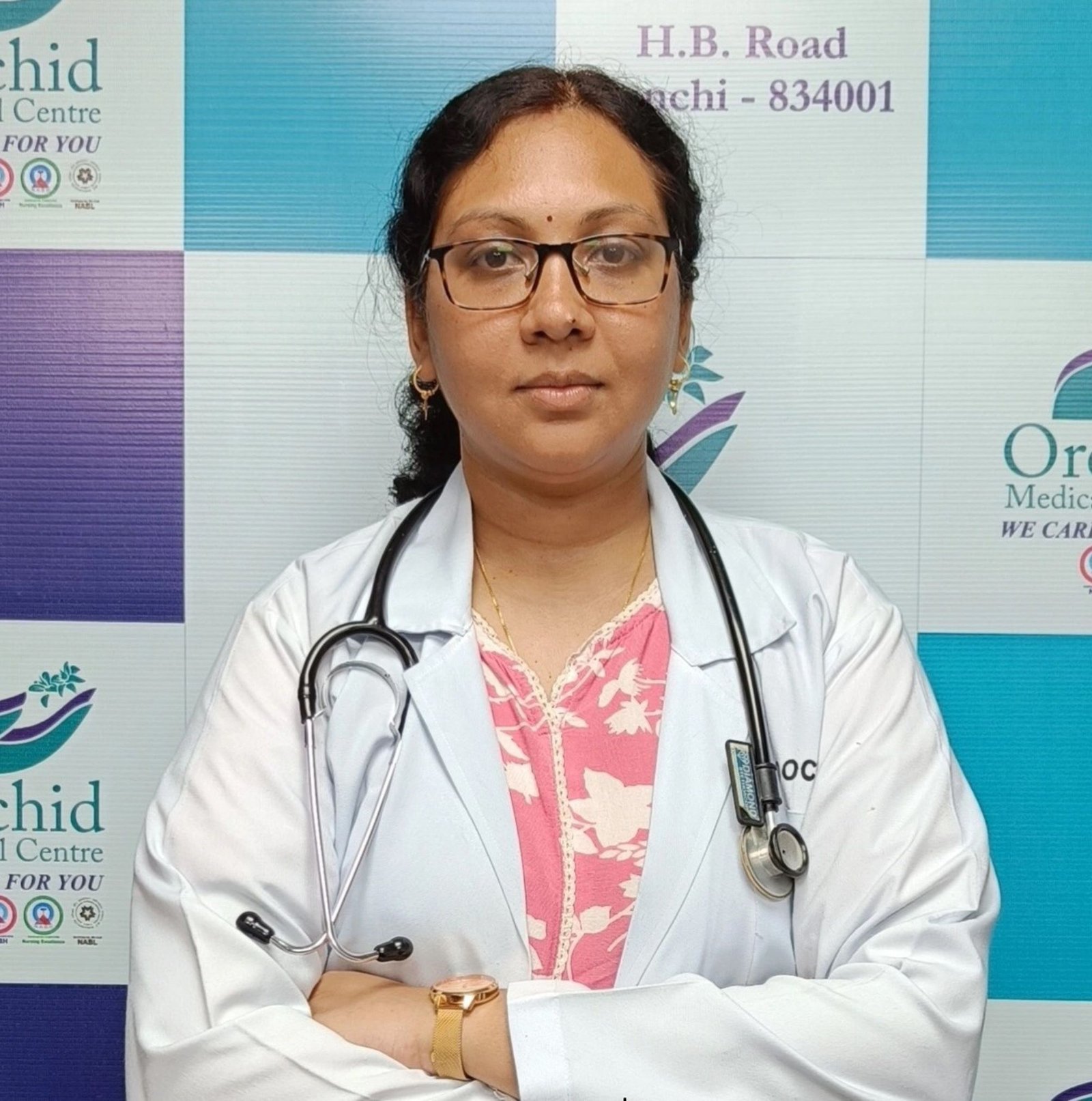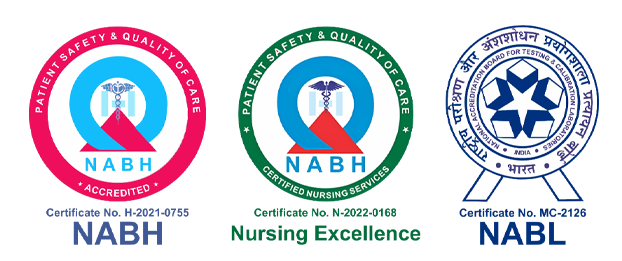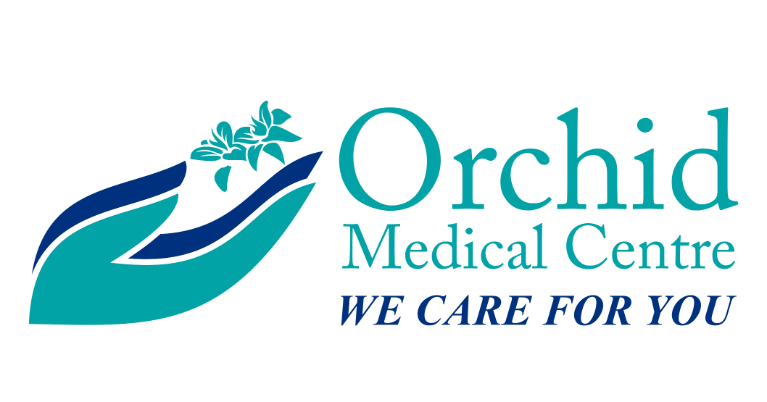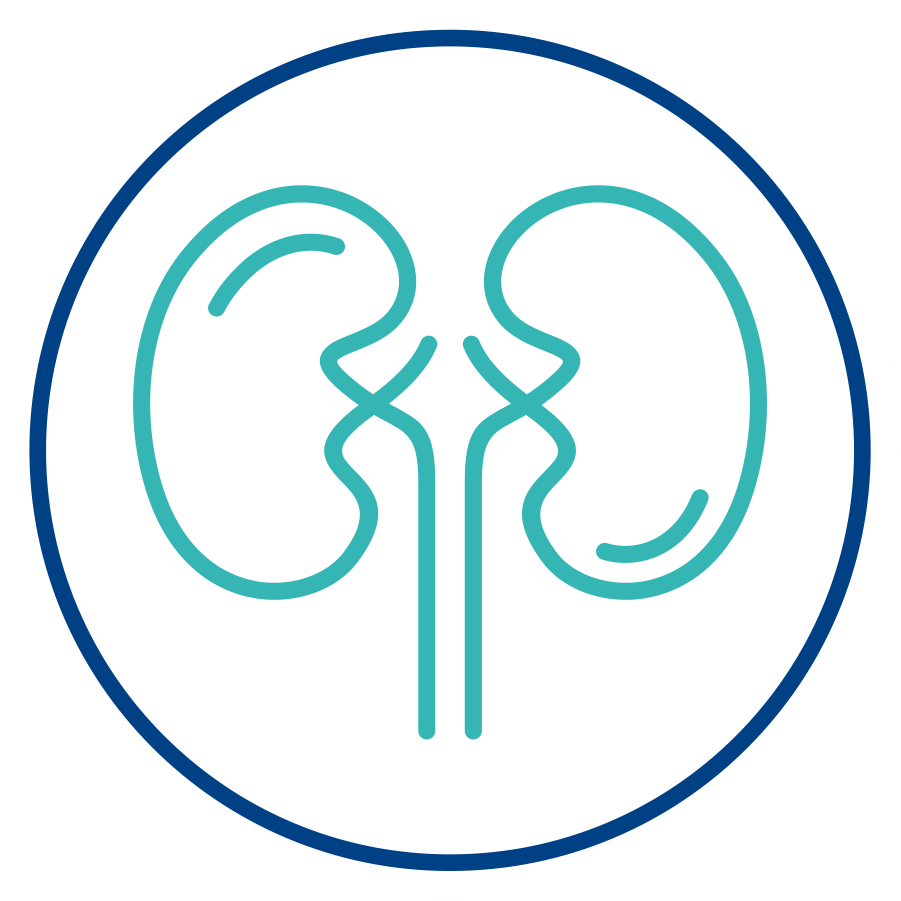
- H.B. Road, Ranchi, Jharkhand 834001
- Emergency Number: 9117100100
Nephrology

Dr Neha Sharma
MBBS, MD, DM
Dr Shalini Priya
MBBS, MD, DNB
FAQ
Frequently Asked Questions
• Acute Kidney Injury (AKI)
• Chronic Kidney diseases (CKD)
• Glomerular diseases including glomerulonephritis and nephrotic syndrome
• Hemodialysis
• Kidney biopsy
• Hypertension in kidney disease
• Diabetes in kidney diseases
• Anaemia in kidney diseases
• Mineral bone disease of CKD
• Chronic Kidney diseases (CKD)
• Glomerular diseases including glomerulonephritis and nephrotic syndrome
• Hemodialysis
• Kidney biopsy
• Hypertension in kidney disease
• Diabetes in kidney diseases
• Anaemia in kidney diseases
• Mineral bone disease of CKD
Following are the symptoms of early kidney disease:
• Weakness
• Fatigue
• Change in urinary habit
• Frequent Urine at night
• Frothing in urine
• Swelling of legs
• Weakness
• Fatigue
• Change in urinary habit
• Frequent Urine at night
• Frothing in urine
• Swelling of legs
Kidney problem of an early stage can be identified by a simple test:
• Serum creatinine level
• Urine routine
• Microscopy test
• Serum creatinine level
• Urine routine
• Microscopy test
• Diabetes
• Hypertension
• Severe heart disease
• Protein leakage from urine
• Use of over counter’s medicines including painkillers and antibiotics
• Obesity
• Smoking
• Hypertension
• Severe heart disease
• Protein leakage from urine
• Use of over counter’s medicines including painkillers and antibiotics
• Obesity
• Smoking
Nephrology is the branch of medicine that deals with kidney care. A nephrologist treats kidney diseases, manages dialysis, and helps prevent kidney failure.
Fatigue, swelling in feet/face, frequent urination (especially at night), blood in urine, high blood pressure, and foamy urine.
Blood tests (creatinine, urea), urine tests (protein, blood), ultrasound, and sometimes a kidney biopsy.
By controlling the cause (like BP or diabetes), medications, diet changes, and possibly dialysis or transplant in later stages.
Dialysis is a process to remove waste from the blood when kidneys fail. It’s needed when kidney function drops below 10–15%.
Yes, by managing blood pressure, diabetes, staying hydrated, avoiding painkillers, and regular health checkups.
Low-salt, low-protein diet; limited potassium & phosphorus; avoid junk food and drink enough water. Always follow a renal diet plan.
It includes compatibility testing, surgery to place a donor kidney, and lifelong use of medications to prevent rejection.
Most chronic kidney diseases are manageable, not curable. Early treatment can slow or stop progression.
Kidneys filter waste and excess fluids from the blood, regulate blood pressure, balance electrolytes, and produce hormones that affect other organ functions.
CKD is the gradual loss of kidney function over time, which can lead to kidney failure if not managed properly.
Major risk factors include diabetes, high blood pressure, heart disease, and a family history of kidney disease.
Early stages may have no symptoms. As the disease progresses, symptoms can include swelling, fatigue, nausea, and changes in urination patterns.
Through blood tests (e.g., creatinine levels), urine tests (e.g., proteinuria), imaging studies, and sometimes kidney biopsy.
Treatment includes managing underlying conditions, dietary changes, medications, and in advanced cases, dialysis or transplantation.
Dialysis is a procedure to remove waste products and excess fluid from the blood when the kidneys stop working properly. It's needed in end-stage kidney failure.
Yes, by controlling risk factors like diabetes and hypertension, maintaining a healthy lifestyle, and regular monitoring of kidney function.



